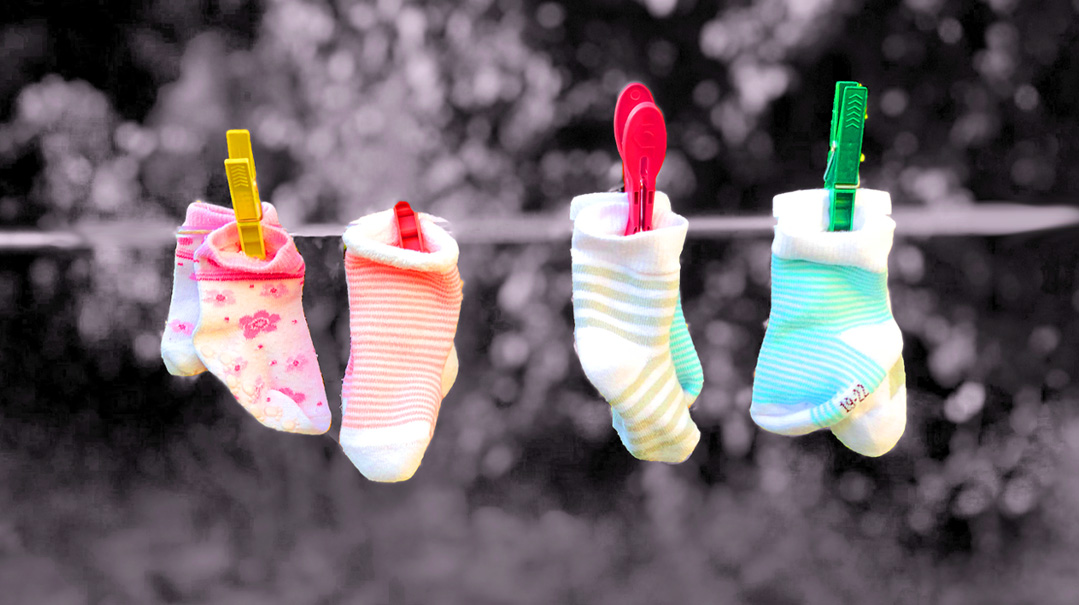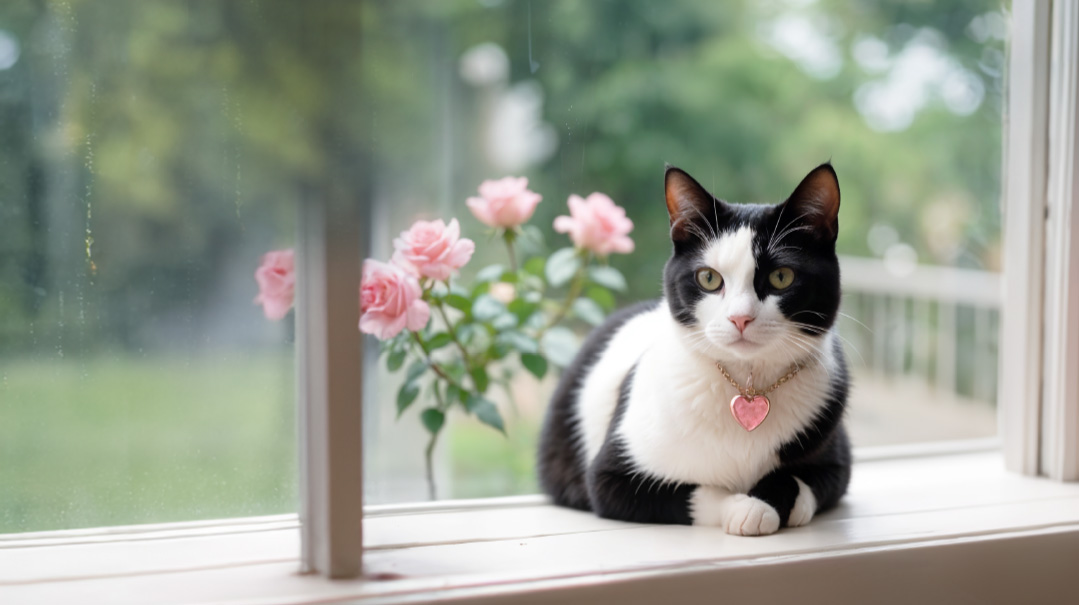Seven Good Years

We found our way to frumkeit. But would we ever merit a family?

As told to Hadas Afik by Ahuva Ohr Bukovza
I
grew up on Kibbutz Nirim, in the south of Israel, living a typical kibbutz lifestyle. I walked around barefoot. Every cow in the barn was my friend and I knew every detail of every flowerbed on the kibbutz.
My family was, of course, completely secular. It was only when I was in high school and started spending the occasional Shabbos at more traditional friends that I first saw what a Shabbos table looked like.
Not that they were particularly religious families. But they made Kiddush and there were candles; I connected to this spirituality and felt drawn to Shabbos. I would have loved to have Shabbos at home, but on Friday nights my family just ate supper together as usual; there was nothing particularly special about it.
I wanted it so badly, I started looking for opportunities to go away for Shabbos as frequently as possible. Slowly, I gravitated to a more Torah-oriented lifestyle. I felt like I’d found something I’d lost, even though I hadn’t realized it was missing. I had emunah from age zero, it just took years until I learned to call it by its name.
When I was 18, I took significant steps toward becoming shomer Shabbos. I stopped traveling or talking on the phone on Shabbos, and I tried to refrain from chillul Shabbos as best as I could. I also began to attend shiurim, which really helped me advance in Torah knowledge.
My parents didn’t take it well. They thought it was some crazy fad. Or maybe that’s what they hoped — their greatest fear was that I’d become observant and be estranged from them. They knew that if I was frum, I wouldn’t be able to eat with them, and even living at home would be complicated. They were terrified of losing me.
For a long time, I’d been learning and growing without any outward changes, so no one really knew what I believed or how I felt. But when I was 19, I stopped wearing pants and switched to skirts exclusively, and suddenly, everyone knew I was becoming religious.
“You’ve finally outgrown your teenage issues, and now this!” my mother complained.
But I knew that it was actually the religious growth I was experiencing that was responsible for my new “maturity.”
When I met the man I would marry, it was clear to both of us that we were going to continue growing in Yiddishkeit. My husband’s family was frum, but my family situation was more complicated. Still, it was extremely important to preserve a close relationship with my parents. In fact, for the first year we were married, we lived on the kibbutz.
It wasn’t easy. We wanted to avoid conflict with my parents so, with the guidance of our rabbanim, we tried to be as lenient as possible. We kept our own set of dishes and pots in my parents’ house so we could eat together with them, and tried to do whatever we could to avoid offending them and to maintain a warm and loving relationship. Today, my parents are so understanding and respectful of our choices that when we visit them, they use our pots and cook kosher food for the whole family during our stay. We never asked them to do that, but that’s how loving and understanding our relationship is.
That year on the kibbutz taught us something important — we realized how strongly we wanted a different life. Being the only religious family in the entire community made us more certain that we wanted to build a frum home, and even on the kibbutz, we kept taking on more religious commitments.
It wasn’t easy or pleasant. We had some neighbors who deeply resented the fact that we were frum and made their opinions known. It’s hard to defy the society around you. But the truth was stronger than anything else.
When that first challenging year was over, we moved to Be’er Sheva. Finally, we were living among chareidim.
Our first anniversary had passed, we were settled in our new city, and we were eager to have a family. We didn’t know we were in for a long haul.
For four years we waited and hoped. During that time, I became an architect and began working. Finally, we started treatments.
I was sure we would have children. By nature, I’m calm and optimistic, and my husband has a similar temperament. We moved forward with the expectation that the treatments would be successful and we’d have good news soon. We didn’t make ourselves crazy with tons of research and we didn’t pay too much attention to the statistics — which was good, because in our situation, they weren’t very favorable. We just moved forward and did what we had to do.
Part of that stemmed from our natural equanimity, part of it was denial. It was easier to hope for the best than to face the fact that the odds stacked against us.
The treatments didn’t go well. There was one huge disappointment after another. I taught myself not to look at the big picture — it was too tough to absorb. Instead of looking ahead at the unknown, frightening future, I tried focusing on the small, current details. What do we have to do right now? How can we help ourselves today?
But as more time passed, it became harder and harder to do that. The waiting became exhausting. It was a painful process, and a difficult time.
I don’t think we could have gotten through that time without emunah. My husband and I began attending shiurim, which gave us chizuk, and we tried to be strong for each other. We really believed it was just a matter of time, that Hashem wanted our tefillos, wanted us to be a bit closer to Him.
After 18 months in treatment, when we had been married for five years, the day we anxiously awaited finally arrived.
When we found out that I was expecting, we were thrilled. When we found out I was expecting triplets, we were stunned. How could it be that we deserved such a gift? We couldn’t stop thanking and praising Hashem. Our parents we so happy, everyone was so happy for us. It was like Hashem was showering us with goodness — we had waited and waited, and now we were getting this huge triple gift.
One day, I felt a kind of strange, unfamiliar back pain. It continued for a few days, and then one morning, suddenly got worse. We set out for Soroka Hospital.
At the hospital, things moved fast. The doctors examined me and determined that I needed an emergency caesarean section. I was whisked into surgery, reassuring my mother and mother-in-law that there would be a miracle.
I was so busy encouraging them, I didn’t have a chance to worry.
The first thing I said when I woke up after surgery was, “Are they alive?”
They were — two girls and a boy. They each weighed a little over one pound.
I was so relieved when I heard they were alive. I didn’t understand yet what “life” meant at this stage. My natural optimism kicked in, and I was sure everything would be okay.
I was wheeled to the NICU to see my babies. Even though the nurses had prepared me and explained what I was going to see, it was very scary — three babies in incubators, so very tiny, and connected to all kinds of machines. We couldn’t hold them; we could only stick our hands in to stroke them.
The doctors explained that the first three days were critical. It was the day before Taanis Esther.
On Purim, when the babies were two days old, one of the girls passed away.
I was still in the hospital, eating the Purim Seudah, when I got the news. It felt like my heart shattered. I’d only ever seen my baby once. But I had two more children to fight for. They needed me. That gave me strength.
On Shushan Purim I was released from the hospital, but the two babies remained in the NICU. We needed to bring them mother’s milk every morning. We sat next to them, stroked them, and we were just with them, davening a lot.
We had spent the first Shabbos with the babies in the hospital, but the next Shabbos we were at home; I was weak and we were so drained, we just had to rest a bit. On Shabbos the phone rang. It was the hospital, informing us that the baby boy was in critical condition. We were too far from the hospital to walk there, so we had to wait until Motzaei Shabbos to go to the hospital. By the time we arrived, he had passed away.
This second loss was much harder to endure. I’d known, of course, that he was a tiny preemie, but the thought of him being taken from this world without ever experiencing it broke my heart. The contrast between the promising future we had been looking forward to and the harsh reality was incredibly painful. Just two weeks ago we had been looking forward to becoming the parents of triplets, the future so promising and exciting. Now, the whole plotline had changed.
Somehow, in that darkness, I felt infused with tremendous strength. The story wasn’t over, because I had one more daughter — and she was my whole life. From the first moment, the doctors had told us she was the strongest of the three, and that there was a chance for her to survive. I was ready to do anything so she would thrive and we could raise her.
So we took a deep breath and continued going to the NICU, just like we had done until that day. But this time, it was for a single baby.
We had been considering two names for this baby — Efrat and Esther. My husband went to Rav Chaim Kanievsky to ask his advice. Rav Chaim recommended Esther. Then, wanting to give the baby a brachah, he asked for my name. When my husband told him my name was Ohr, Rav Chaim told him to add another name. We added the name Ahuva, and I’ve been called Ahuva Ohr ever since.
When I think about those days, I remember it as one long stretch of sitting in the NICU with little Esther. We’d stay every day as late as we could, and then return early the next morning. We had almost no time to deal with anything else. Even the breaks that we took every so often were just enough to go home and eat something.
There was no one besides us who could take our place at the NICU. Only parents of the patients were allowed in. Our parents came to the hospital frequently, and they sat outside. They brought us food and just wanted to be there for us. But they could not take over our vigil. It was very, very hard, but I would do everything for my child.
As time passed, the doctors began to express some optimism about Esther’s condition. At one point she was even breathing on her own a little, and our hopes rose. But a few days later she came down with an infection, and as a preemie, she wasn’t equipped to fight it.
When we went home that night, we knew the numbers weren’t good. As we drove, I had a strong premonition that she would not survive.
When we arrived the next morning, she was in her final hours.
Esther lived for four weeks, and then we lost her too. In one month, we had lost three babies, and all our hopes and dreams. We don’t even have photographs of the first two babies — we were so busy that there was no time to take photos in the short space of time that they lived. We have only one photo of Esther.
We left the hospital with empty arms and broken hearts, and moved into my in-laws’ home. My mother-in-law helped us tremendously. We lived with them for a long time. It was just too hard for us to go home. To this day, I don’t know exactly how long we were there, because I tried to block out that whole period. The memories hurt, and there are a lot of details I don’t remember.
The pain was staggering. As baalei teshuvah, our pain and bewilderment had an added dimension to it. We had questions in emunah, and we couldn’t refrain from asking them. We couldn’t understand why this happened to us, what we did to deserve this. We were so good — we did teshuvah, we stood up to our families and communities, we made such an effort to keep mitzvos, so why was this happening to us? For a month and a half after the birth, I simply couldn’t daven.
Somehow, we went on. We had no answers — to this day we don’t have answers. But the miracle was that we had each other. Each time I fell, my husband gave me strength, and when he was down, I tried to strengthen him.
We both listened to lots of shiurim, and that helped a lot.
Maternity leave in Israel is 14 weeks, and even longer for multiples, but by the time we finally returned home, my leave was almost over. I was ready to go back to work. Staying home wasn’t good for me. With so much free time I was constantly flooded with painful thoughts; I brooded a lot and wallowed in my pain and grief.
Once I went back to work, I was able think about other things. I was happy to be out and about again, but I didn’t get the support I desperately needed. Most people didn’t dare bring up the subject, didn’t dare ask how we were doing. That was something I really needed — someone to take an interest in how I was feeling, to acknowledge what had happened to me.
It was six months before one of my neighbors asked “if everything is okay.” When I told her in short what had happened, she told me her daughter-in-law had a similar experience. She spoke about it with such secrecy, yet with so much pain. It was clear that she would never have mentioned it, except that she thought it would give me chizuk.
I began to realize that my experience wasn’t so rare — but still, no one talks about it. Every woman suffers alone. I believe that sharing an experience makes it easier to bear. I know there may be some women who find the topic of loss too painful to speak about; everyone copes differently. But for me, talking about my experiences and hearing from others with similar experiences makes me feel supported. This was an entire year of my life we’re talking about. It’s not something I can just gloss over. I was confident that for many women, the path to healing is through sharing.
At the time, I was taking a course for interior designers and architects. During one of the classes, the instructor directed us to share, in writing, something about ourselves that the others in the class didn’t know. One person wrote about her child with special needs, another wrote about a childhood event that had a lifelong impact.
I took the opportunity to share the story of my loss of the triplets. Afterward, some of the women asked permission to share it with others. From the moment it got out there, I started receiving emails from strangers. Some shared their names, some reached out anonymously. But so many women wrote to me that they had been through something similar. Some women called me, and we gave each other chizuk. I also established a support group so that we could all strengthen one another. There’s a unique comfort in the knowledge that you aren’t alone.
A year and a half after the triplets were born, we started treatments again. We were prepared for an excruciating, drawn-out process, but this time, the good news came quickly. After three months, we found out that once again we were to become parents.
I got the results while I was at work. I called my husband, but I couldn’t speak. All I could say was, “Guess.” He knew what I was trying to tell him. On either end of the line, we both cried.
The next few months were extremely tense. We couldn’t allow ourselves to get excited. We both remembered what we’d been through, and we were terrified that it would happen again. Only when we passed the point where I’d given birth in the previous pregnancy did we begin to breathe easier.
Baruch Hashem, the pregnancy was smooth, with no complications. I gave birth in Soroka Hospital, with the same team I’d used for the triplets’ birth. It brought us full circle.
Itamar Ovadia is two months old now. We’re still trying to get used to the new reality. But despite being so busy, I continue to answer emails from women who reach out. Some of the emails are from women who need support, and I also get emails from people who know my story and want to wish me mazel tov. Women I’ve been in touch with in the past also email me when they have good news.
We’re married for seven years now. That count is always associated with Pharaoh’s dream. Were they seven lean years or seven good years?
I know my answer: they were good years. These years had challenges, but they were good years.
I want people to know that there’s always a chance, and you should never despair. And I want women to know that when times are tough, we can support each other.
(Originally featured in Family First, Issue 796)
Oops! We could not locate your form.







